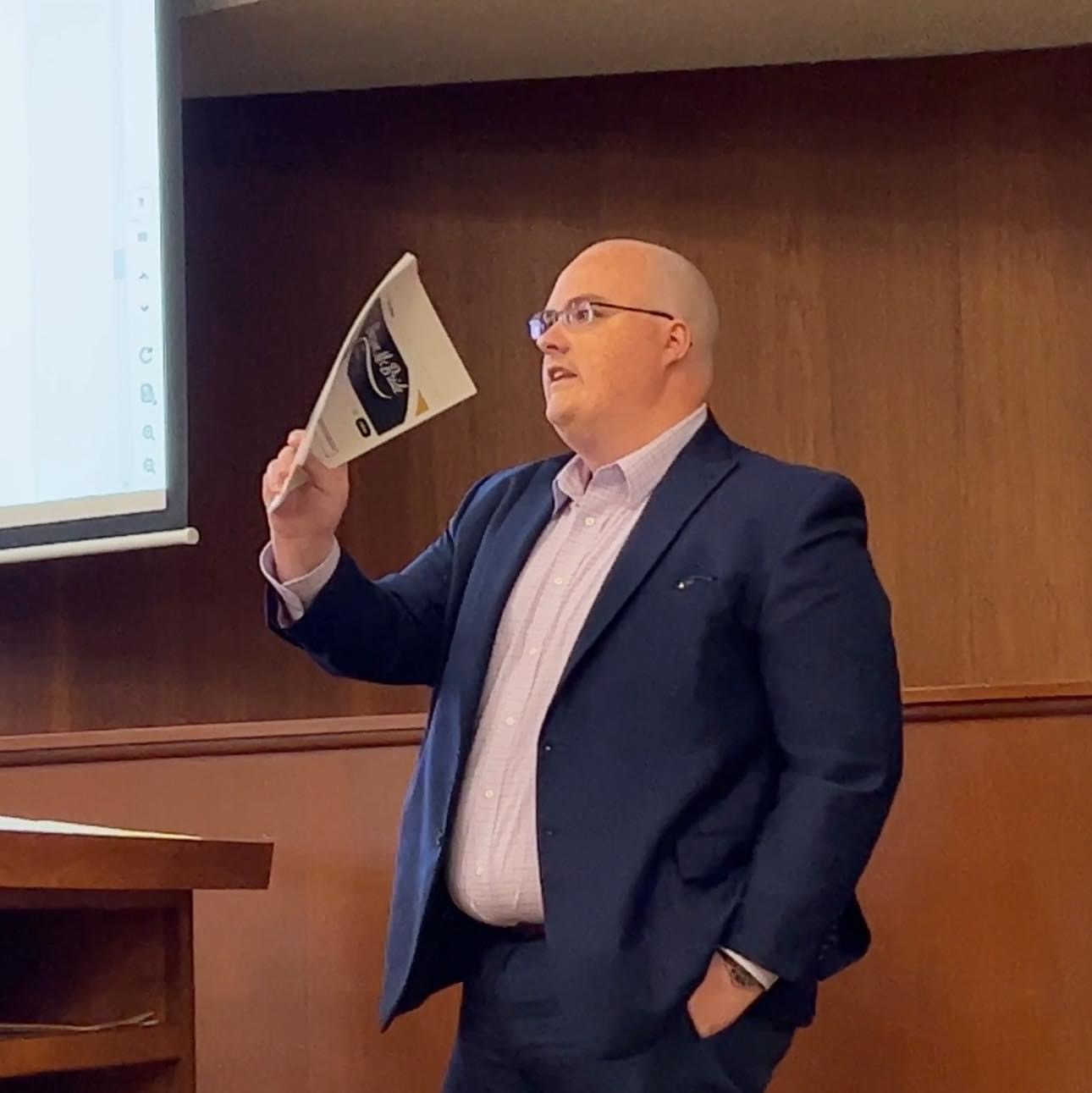South Bend’s Project 2025 Sparks Controversy Over Free Speech Restrictions
- Logan Foster
- Nov 22, 2024
- 3 min read
Updated: Dec 17, 2024
The City of South Bend, Indiana, is facing renewed scrutiny as its Common Council President, Sharon McBride, is under investigation for alleged ethical violations and financial misconduct. Now, Sharon McBride is at the center of a new controversy, introducing legislation that many say threatens free speech at Common Council meetings.

Ordinance 72-24’s New Restrictions
Ordinance 72-24, proposed by Sharon McBride (and co written by At Large Council Member Karen L. White), introduces significant changes to the rules governing public comments during South Bend Common Council meetings. The ordinance would limit comments to three minutes, prevent individuals from addressing previously decided topics, and prohibit speakers from reiterating points made by others during the same session.
This would include matters such as previously decided zoning ordinances, municipal contracts, and other council-approved measures. Critics argue that such restrictions suppress public input and accountability, silencing concerns that may resurface or evolve over time.
Public commentary, or "Privilege of the Floor," has been a fixture of Council meetings since 1973, with no significant changes enacted since 1998. Observers question the timing of this legislation, particularly as McBride herself has faced allegations of professional misconduct and financial impropriety.
Sharon McBride Under Fire for Allegations
Sharon McBride, who currently serves as the leader of South Bend’s Common Council, was recently terminated from her position as Director of the DuComb Center. Reports allege that Sharon McBride engaged in ghost employment, abused overtime payments, improperly used credit cards, and paid her mother over $100,000, including $47,000 in overtime. These accusations led to her dismissal by the St. Joseph County Commissioners earlier this year.
Additionally, sources close to Sharon McBride claim McBride has not resided within her elected district for over six months. Sources close to McBride claim that McBride is living in the 2nd District, not the 3rd District which she was elected to represent. This would render her ineligible to hold her current council seat.
A water usage report from South Bend utilities and feedback from local solid waste authorities support these allegations, raising serious questions about her compliance with residency requirements. The director of solid waste in South Bend reported to Redress that Sharon McBride has not had her trash picked up in her Third District home in over 6 months.
Accusations of Hypocrisy and Authoritarian Behavior
The proposed ordinance has sparked comparisons to national debates about free speech and political accountability. Critics highlight the irony of local Democratic leadership introducing such restrictions, especially after warnings about alleged authoritarian tendencies under former President Donald Trump.
South Bend Democrats, who control the council 9-0 alongside a Democratic Mayor and Clerk, have faced backlash from local residents and political observers accusing the party of attempting to muzzle public dissent. This push comes at a time when Council leaders, including Sharon McBride, are under increasing scrutiny for their actions.
“Democrats spent the last year warning the public about the dangers of authoritarianism and threats to democracy,” noted local businessman Don Foster. “Yet here we are, watching the same party attack public speech and try to silence criticism.” “If anything, this looks like an effort to shield sitting council members from future criticism by silencing the residents of South Bend,” argued Foster.
Implications for Free Speech and Transparency
Opponents of Ordinance 72-24 argue that it could set a dangerous precedent by reducing transparency and accountability in local government. Critics fear it would allow elected officials to avoid scrutiny on controversial decisions and shield themselves from public criticism.
“Democracy thrives on accountability,” said another local business owner who attended a recent council meeting. “The Privilege of the Floor is not just a procedural footnote; it’s a lifeline that connects the governed to their government. To tamper with it sends a chilling message.”
Advocates for free speech emphasize the importance of public forums in addressing evolving community concerns. Issues such as municipal spending, rezoning, and public programs are inherently dynamic, often requiring ongoing dialogue between residents and elected officials.
What Happens Next?
Ordinance 72-24 is set for its first reading on November 25, 2024, with public hearings scheduled for December 9, 2024. Community members and political observers alike are expected to bring heated debates to these sessions.
The ordinance has placed Sharon McBride and the South Bend Common Council under intense public scrutiny. The ongoing investigations into Sharon McBride’s conduct only increases concerns about the motivations behind the proposed legislation.
The fate of free speech in South Bend will likely rest on how council members respond to mounting criticism and whether they decide to uphold the historical standard of open dialogue with the public—a hallmark of South Bend's democracy since 1973.
Stay tuned for updates on this developing story as the community rallies to protect their voice and ensure the integrity of democratic processes.
View Proposed Ordinance 72-24 Below:




